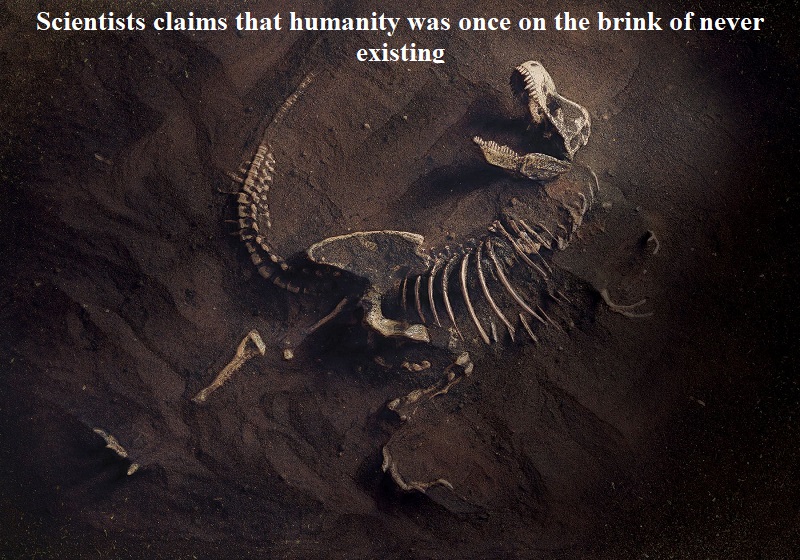
Plastic pollution, deforestation, contaminated water bodies, and an increasingly concrete world are all visible signs of humanity’s ongoing existence on Earth.
Currently, the global human population has exceeded 8 billion people.
Yet, scientists are now proposing a remarkable idea: that humanity once teetered on the brink of nonexistence.
Chinese researchers have uncovered compelling evidence suggesting that 930,000 years ago, our modern human ancestors endured a catastrophic population collapse, likely triggered by profound climate changes.
During this period, referred to as a “bottleneck,” our ancestors dwindled to fewer than 1,280 breeding individuals, with approximately 98.7 percent of human ancestors lost, posing a severe threat to their survival.
This groundbreaking study was published on Thursday in the prestigious journal Science.
This research introduces the intriguing possibility that a climate-induced bottleneck may have played a role in the divergence of early humans into two distinct evolutionary paths: one leading to Neanderthals and the other to modern humans.
For decades, scientists have pieced together human history through genetic analysis, examining the intrinsic biological aspects of genetic mutations and their transmission across generations.
Recent technological advances in DNA sequencing have enabled the comparison of complete genomes from diverse human populations.
How was the study conducted?
Haipeng Li and his team, based at the Chinese Academy of Sciences in Shanghai, developed the FitCoal method, a tool capable of modeling a million years of evolution, broken down into monthly segments. This method facilitates the exploration of the histories of various living organisms, including humans.
Initially, their focus was on animals like fruit flies, but they later shifted their attention to humans, comparing the genomes of 3,154 individuals from 50 populations worldwide.
Their investigation led them to conclude that a near-extinction event occurred among our ancestors 930,000 years ago.
Before the bottleneck, the ancestral human population numbered approximately 98,000 breeding individuals.
This number dramatically plummeted to fewer than 1,280 individuals, and this reduced population persisted for 117,000 years before experiencing a recovery.
The researchers argue that this bottleneck aligns with the fossil record of our human ancestors.
Our branch of the evolutionary tree diverged from other apes around seven million years ago in Africa. By around one million years ago, our ancestors in Africa had evolved to be tall and large-brained.
Following this, some of these early humans migrated to Europe and Asia, evolving into Neanderthals and Denisovans, while our lineage continued to evolve into modern humans in Africa.
Despite decades of fossil hunting, the scarcity of remains from ancient human relatives in Africa between 950,000 and 650,000 years ago remains puzzling, and critics have called for more conclusive evidence to support the claims made by Chinese scientists.

Post Your Comments